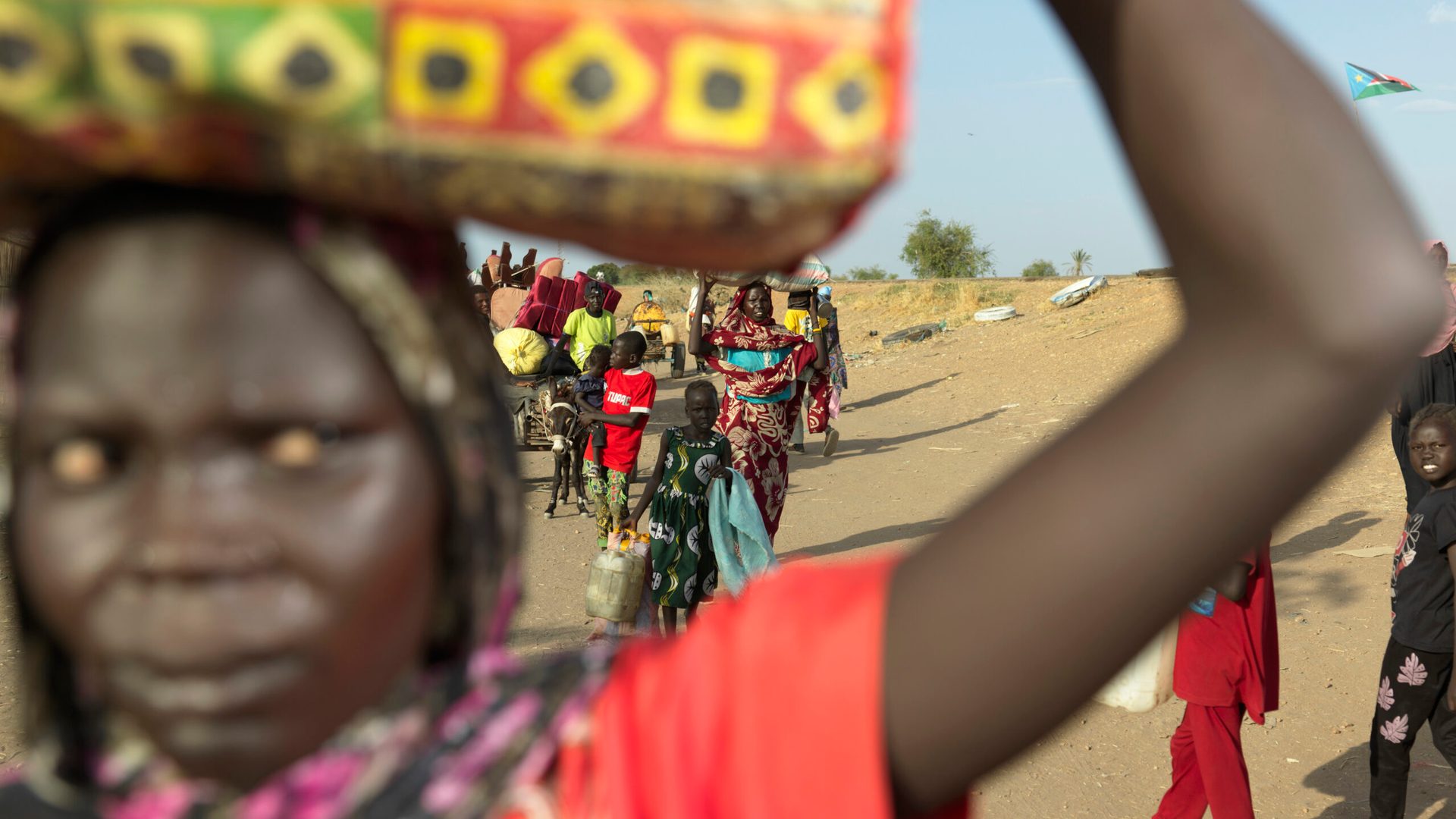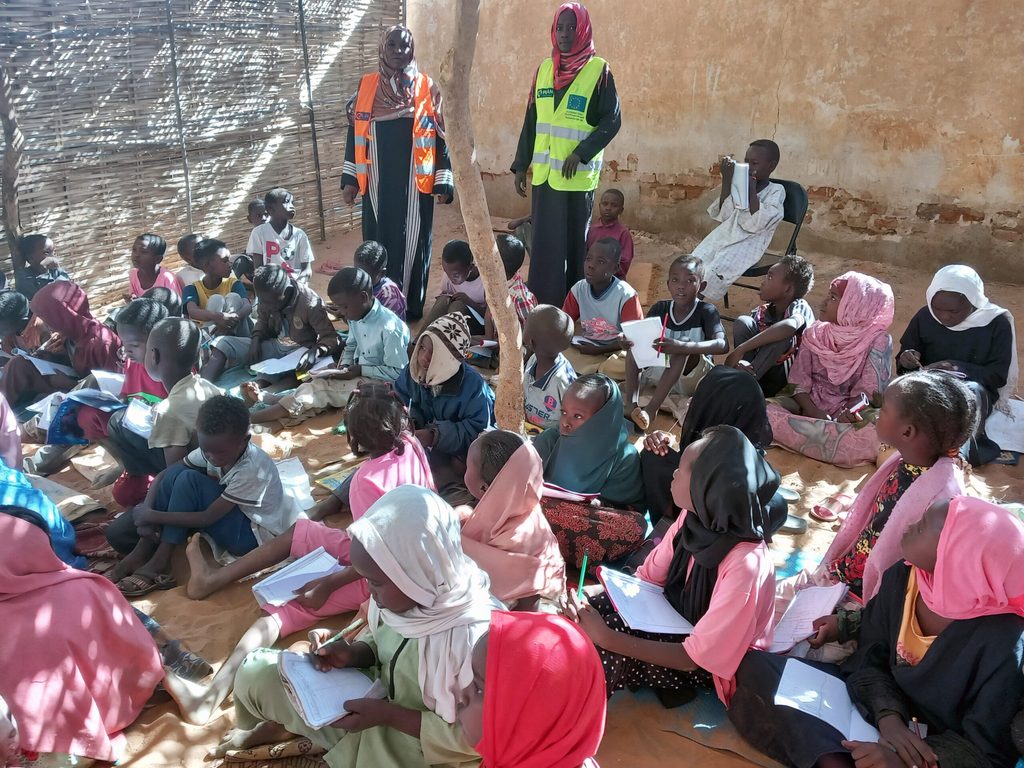The place of Sudan women in the quest for peace
8 August 2024If Sudan is to have a future and if hope is to be reinstated, then it is imperative that the women of Sudan be heard, recognised and be part of the present and future of the country, blogs Mohammed Qazilbash, Country Director Plan International Sudan.

More than a year since conflict broke out in Sudan on the 15th of April 2023, and it is the stories of women that have continued to paint the picture of atrocities being faced by the citizens of Sudan and the impact the civil war, war induced displacement and war induced famine has had on the lives of millions across the country.
“Sudan is not a forgotten crisis, it is a neglected one.”
Mohammed Qazilbash, Country Director Plan International Sudan
It is the women and children who make up the majority of the forcibly displaced within and outside Sudan as their husbands and even sons remain behind. These women are forced to take on additional caregiving responsibilities, income generating and livelihoods activities, to ensure that the next generation of Sudanese survive. They are the ones cutting down on their own ration and meals, are eating less so others can have a full meal. The others being their own children! Lactating and pregnant women are forced to deplete the little reserves they have in their own body to nourish the little ones that are oblivious to the devastation they are growing up in. Displaced women and girls are also the ones facing significant protection and health risks, especially those who are survivors of gender-based violence, being forced to commit survival sex so as to protect the future and dignity of the next generation. Girls forced into early marriages as a survival mechanism is now being practiced and witnessed across the country. Sudan is not a forgotten crisis; it is a neglected one.
Living through conflict
Yet, in the face of adversity, violence, poverty, and trauma, Sudanese women are rising to the occasion and taking action. Women led organisations are providing life sustaining support to millions across the land and in refugee camps in the neighbouring countries. Taking care of each other, their families and their communities especially in regions where humanitarian aid organisations have been unable to reach at scale or are severely restricted to deliver much needed assistance. The women of Sudan have come together and are now the face of humanitarian aid for their communities, helping pregnant and breastfeeding women as well as forming informal classes in gathering sites to keep children who haven’t gone to school in over a year engaged and ensuring that they continue to learn as their world around them crumbles.
Plan International is particularly concerned that schools across Sudan have been closed for a year, with more than 170 school buildings now being used to shelter displaced people. This means that an entire generation – 20 million children – is missing out on their right to an education.
Women’s economic contributions and decision-making power has remained limited in Sudan, especially in some of the most conservative areas of the country, feeding on existing gender inequalities perpetuated by harmful gender and social norms and Sudan’s patriarchal society. It is evident though that it is the women who are solely holding the country’s fabric together. Whose lives and roles have been expected to remain constant even as the world around them continues to fall apart. They are the ones with a lot more to lose and are therefore, the best people to do whatever it takes to see an end to the world’s largest child displacement crisis.
“An entire generation of Sudan’s children are missing out on their right to the education with the ongoing conflict.”
Mohammed Qazilbash, Country Director Plan International Sudan

Plan International has continued to work with women and children since the onset of the war where they can, supporting them by providing food, and water assistance as well as mobile, child friendly spaces, where children are encouraged to play, draw, sign and use techniques such as storytelling to support them process their trauma. But more certainly needs to be done. Women and children out of school are at increased risk of sale, sexual abuse, exploitation, family separation, abduction, trafficking, recruitment and use by armed groups making protection and education two of the biggest needs. Despite this, protection and education sectors are the least funded with protection only 16% funded and education even lower.
The women of Sudan must be given a seat at the decision-making process for both the peace process and for responding to the humanitarian needs.
The place of women in conflict resolution
Lessons could be borrowed from the first women’s group to ever attempt this – ‘Women Together’ – that brought catholic and protestant women into talks and cooperation in the 1970s, standing in solidarity against the government and military groups to help end violence in Northern Island then.
It was at the height of the troubles that many women in Northern Ireland set aside their differences to focus on their commonalities – they were all mothers, sisters, daughters, grandmothers, aunts and so on who shared the same hopes and fears for their family’s future. These women of all backgrounds were a constant on the streets, stopping rowdyism and vandalism between gangs of youth and removing burnt out cars as well as publicly supporting peace and victims of intimidation. Eventually playing a pivotal role in both civil rights activism and the peace process. Many of the women who spoke of this initiative refused to refer to themselves as an organisation and instead referred to themselves as ‘just a collection of mothers from affected communities.”
The women and girls of Northern Ireland refused to be silenced by harassment and intimidation and worked tirelessly for a better future – work whose benefits are being reaped today.
Lessons that could be replicated by mothers, sisters, daughters, grandmothers and aunts in conflict ridden Sudan who also share the same hopes and fears for their family’s future.
The women of Sudan have a voice, are we ready to listen to them? If Sudan is to have a future and if hope is to be reinstated, then it is imperative that the women of Sudan be heard, recognised and be part of the present and future of the country.
Categories: Education, Emergencies, Protection from violence

